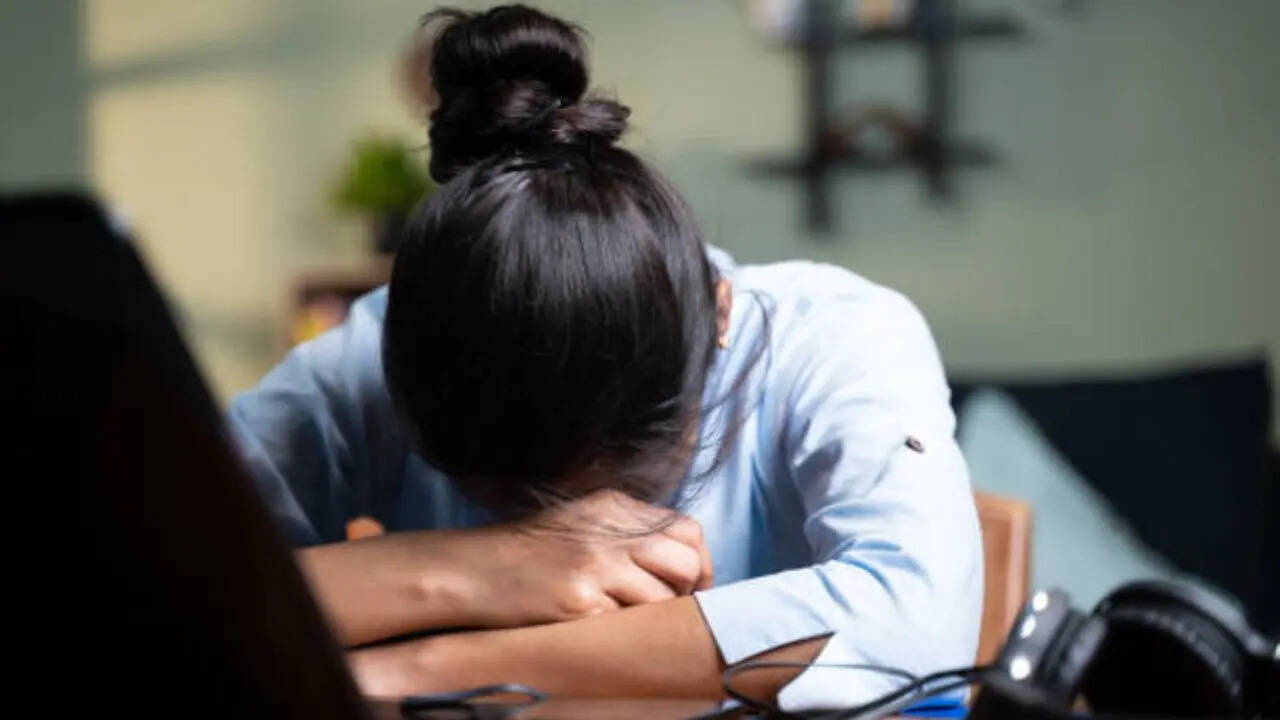Health
Neuroscientist Reveals How Screen Time Fuels Exhaustion

A common habit embraced by many as a way to unwind may be detrimental to mental health, according to Dr. Wendy Suzuki, a Professor of Neural Science and Psychology at New York University. In a recent Instagram video, she highlighted that watching videos or streaming shows online is contributing to exhaustion and cognitive decline, contradicting the popular belief that such activities provide a much-needed break.
Dr. Suzuki, who has amassed over 158,000 followers on Instagram, stated, “Social media is not a brain break; it is actually a brain trap.” She explained that true brain recovery occurs only when the mind is free from constant inputs. This is a critical factor in why many people feel drained after what they perceive as “rest.”
Impact of Smartphone Use on Sleep Quality
Research from King Saud University in Saudi Arabia supports Dr. Suzuki’s claims. The study, which examined the smartphone habits of 435 adults over a period of seven months, revealed alarming trends regarding sleep quality. Nearly half of the participants, specifically 41.7 percent, reported poor sleep quality. The findings indicated a two-fold increase in the risk of sleep issues for individuals who used their smartphones for just 15-20 minutes before bedtime. The risk escalates to more than three times for those engaged with their devices for at least 30 minutes during nighttime.
Morning smartphone usage poses similar dangers. Dr. Suzuki pointed out that checking phones first thing in the morning prevents individuals from harnessing their brain’s potential during its most productive hours. During this period, levels of dopamine and cortisol are naturally elevated, leading to improved motivation, creativity, and focus. Unfortunately, screens can undermine this potential.
Strategies for Reducing Screen Time
To mitigate the negative effects of excessive screen time, Dr. Suzuki suggests practical strategies. She encourages individuals to try delaying their screen usage for just 20 minutes each morning. Instead of immediately reaching for their devices, she advises engaging in stretching or other physical activities.
Several tips can help facilitate a phone detox, particularly during the evening hours. Setting specific times in calendars or alarms to remind users to take breaks for walks or meals away from their desks is beneficial. Dr. Suzuki recommends regular breaks to alleviate stress, especially for heavy smartphone users.
Eliminating distractions can also be effective; individuals might consider downgrading to simpler cell phones that do not support numerous apps. Dr. Suzuki further recommends powering down devices before dinner and abstaining from screens until the next morning. Banning phones and screens from the bedroom is another simple yet impactful way to improve sleep quality.
The message is clear: while screens may seem like a way to relax, they can ultimately drain energy and hinder cognitive health. By reassessing how and when to engage with technology, individuals can foster better mental wellbeing and enhance their overall quality of life.
-

 World5 months ago
World5 months agoSBI Announces QIP Floor Price at ₹811.05 Per Share
-

 Lifestyle5 months ago
Lifestyle5 months agoCept Unveils ₹3.1 Crore Urban Mobility Plan for Sustainable Growth
-

 Science4 months ago
Science4 months agoNew Blood Group Discovered in South Indian Woman at Rotary Centre
-

 World5 months ago
World5 months agoTorrential Rains Cause Flash Flooding in New York and New Jersey
-

 Top Stories5 months ago
Top Stories5 months agoKonkani Cultural Organisation to Host Pearl Jubilee in Abu Dhabi
-

 Sports4 months ago
Sports4 months agoBroad Advocates for Bowling Change Ahead of Final Test Against India
-

 Science5 months ago
Science5 months agoNothing Headphone 1 Review: A Bold Contender in Audio Design
-

 Top Stories5 months ago
Top Stories5 months agoAir India Crash Investigation Highlights Boeing Fuel Switch Concerns
-

 Business5 months ago
Business5 months agoIndian Stock Market Rebounds: Sensex and Nifty Rise After Four-Day Decline
-

 Sports4 months ago
Sports4 months agoCristian Totti Retires at 19: Pressure of Fame Takes Toll
-

 Politics5 months ago
Politics5 months agoAbandoned Doberman Finds New Home After Journey to Prague
-

 Top Stories5 months ago
Top Stories5 months agoPatna Bank Manager Abhishek Varun Found Dead in Well









